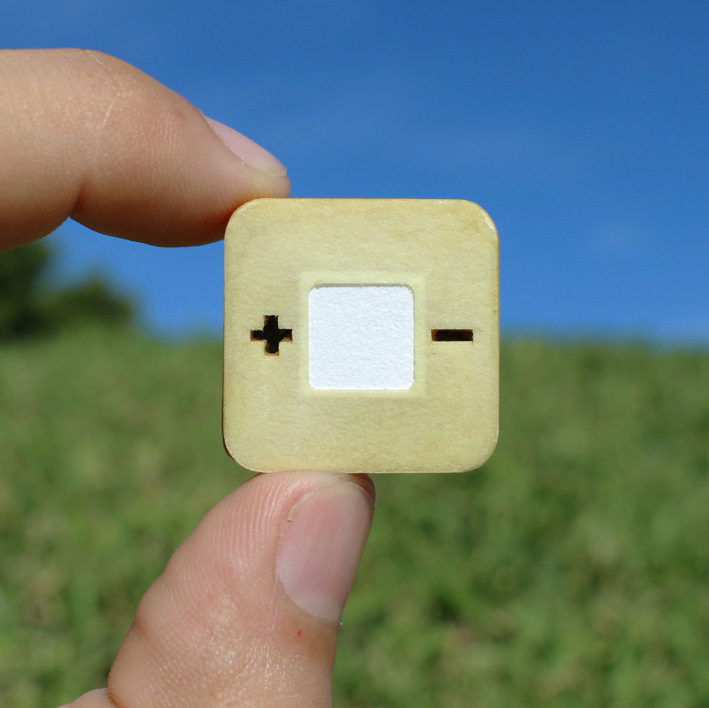This work introduces the PowerPAD battery, the first battery made for portable single-use applications that follows the sustainability guidelines of the circular economy. The battery is fabricated using exclusively organic materials such as cellulose, carbon, organic redox species and beeswax and does not contain any metals, plastics or harmful substances. In collaboration with researchers from the Simon Fraser University (Vancouver) and the Institut de Recerca I Tecnologia Agroalimentaria (Caldes de Montbui) we showed that their organic composition allows soil microorganisms to literally “eat the batteries” and convert them to CH4 and CO2. Therefore, the batteries can be potentially disposed of in natural soils or already existing compost reactors without any harm and thus eliminate the need for specific recycling. Due to its high cost and energy consumption, battery recycling is a world-wide concern; nowadays less than 30% of sold batteries are collected for proper recycling in developed countries and it is practically inexistent in low resource settings leading to severe contamination of landfills.
Due to its groundbreaking nature, the idea was initially supported by Melinda and Bill Gates Foundation in 2015 ( http://www.electrochem.org/challenge/sabate) and after two years of development it has finally been fulfilled in a prototype that delivers energy for more than 120 minutes and is able to power a portable water sensor. The battery prototype received the Ecodisseny Award from the Generalitat de Catalunya last October as a promising Product of a sustainable future ( http://residus.gencat.cat/ca/ambits_dactuacio/sensibilitzacio/premis_med…)
Reference
